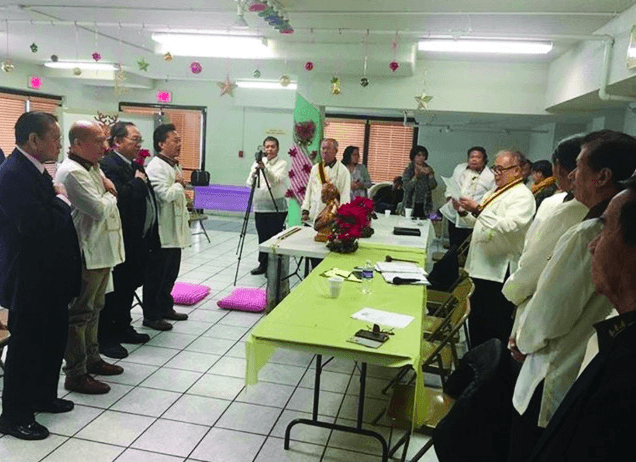His country absorbed him as affectionately. His poems are easy to read — perhaps to sing — to take to heart and put to meaning on its ability to bring what is dearest, as poetry to the human heart and taste.
Murmurs of pleasant memories, pains and wrongs, Rizal’s poetry sings of exceptional passions, of humanity’s escapades into freedom. Poetry that soothes and heals, excites and haunts, embracing the nation’s soul as one, with a kind of chemical solvent to social corruption, to an “archipelagic nation wrought by centuries of abuse, injustice and repression.”
Poetry often appears at night, wrapped in a darker, sadder mood. Rizal’s most renowned “Mi Ultimo Adios,” whose exquisite music of a darker, sadder mood, speaks in authentic voices to and for the country, was written in a familiar style of rhymed cadences about an amorphous subject (himself) in a strange brew of confession, prophecy and language of the soul. He believed in using literature as an instrument for improving the conditions of society, to open the gates to social justice and benevolence. Though he didn’t believe in didactic homilies at the end of his poems, he’d rather reach out by teaching in that charming gesture proving that literature itself can be an anodyne to profit, acquisition and utility. To push away a culture of moral blindness and rampant selfishness, he pointed out that the true greatness of a nation is the greatness of the mind, the true glory on its moral and intellectual predominance.
In these times of globalization, Dr. Jose P. Rizal, by all accounts was the first Filipino global citizen. In an age when travel for Filipinos was rare and arduous, Rizal was already leaving his imprint on several continents. He had been to Asia, only for a tour, but did a surgical job in Hong Kong. He had been to the United States and Europe where the gems of his visionary words were developed and nurtured.
He steeped himself in European language and literature, through translation and more subtly through a kind of alembic process. He inferred his visions of a new country outgrowing its touchy backwardness and dependency in familiar bardic traditional singing of legends and poems that raised native themes and landscape into memorable verses and mastery of delicate versifications. He constantly repeated the essence of his faith in the Filipino, that made him “Ah, que es hermoso dormer la eternidad en su encantada tierra (How beautiful it is to sleep the eternities in you enchanted land).”
Last Friday, December 30, 2016, the Knights of Rizal Historic Filipinotown (KOR-HFT) marked the 120th Rizal Day at Kapistahan Grill with a simple luncheon and exaltation rites hosted by Dr. Charlie Agatep for new members and of 2nd and 3d degree knighthood for the elder members on its 4th anniversary.
Dr. Jose P. Rizal was executed in Manila on December 30, 1896 by a Spanish Court and died as a martyr, but, his death galvanized the Filipinos to give birth to a new nation on June 12, 1896.
KOR Knights Commander Arturo Garcia, assisted by Dep. Knight Commander Dr. Orly Cagampan, exalted new members, which was the highlight of the event. The new Knights of Rizal are: Atty. Roman Mosqueda, Dr. Carlos Manlapaz, Fernandico Gonong Jr., Ramon Inchong, Dr. Arturo Flores, Lino Caringal and photographer Joe Cobilla. Sir Macky Fortu, KOR Exchequer was exalted to 2nd-degree knight. Sir. Dr. Orly Cagampan, Deputy, Deputy Knight Commander of KOR-HFT and Paul Julian to 3rd degree knights by Western Region’s Knights Commander Sir Tony Berango, who incidentally launched his book, “Jose Rizal’s Life in Poetry.”
It was the perfect time to go back to Rizal in a celebration of independence and heroism, honoring his life as an educator, historian, sociologist; whose nationalistic ideas and writings from the late 1800s made him the Philippines’ national hero. It was his views on political freedom, education and independence (which ignited the revolution), that would lead to his martyrdom.
Aside from his exemplary medical acumen, he was known for his linguistic skills having mastered 22 languages and his proficiency in about 45 different disciplines. He was as well a hero to contemporary Malaysian political leader, former Deputy Prime Minister Anwar Ibrahim. Just like in many of our expatriates today, he returned to his country, to share his rare skills and to serve his people. He chose an exile to Dapitan instead of freedom in Cuba.
And there, he revealed more dimensions of his genius – that of an educator, scientist and engineer. In addition to his medical practice, he ran a school for boys, discovered new species of plants and animals and built an irrigation aqueduct that to this day still helps irrigate the farms in Dapitan.
***
E-mail Mylah at [email protected]






